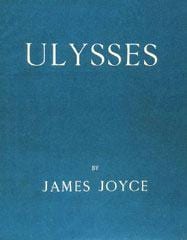
Credit: Corey Pierce
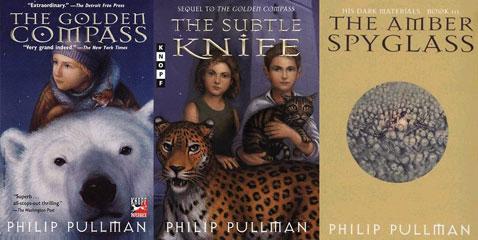
Credit: Corey Pierce
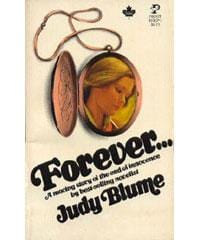
Credit: Corey Pierce
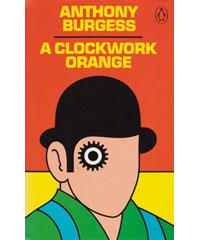
Credit: Corey Pierce
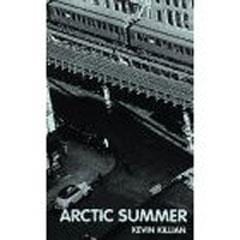
Credit: Corey Pierce
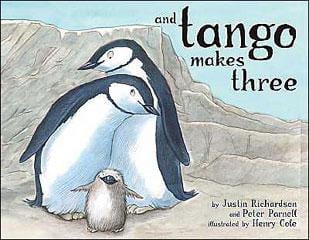
Credit: Corey Pierce
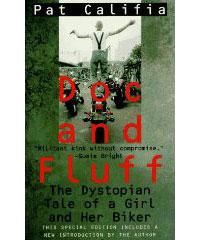
Credit: Corey Pierce
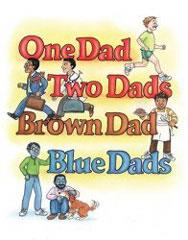
Credit: Corey Pierce
Canada is a censorious country. Our nanny state bans most hate speech (not the religious-based homophobic kind), stops erotica at the border and may soon allow police to monitor all communication on the internet — all to “protect” Canadians from reading, seeing and hearing material that, somehow, will harm us. (Apparently the country’s watchful agents are able to view all this dangerous stuff without a problem.)
As the recent kerfuffle over The Handmaid’s Tale proved (after a religious parent’s complaint the Toronto District School Board reviewed whether to keep Margaret Atwood’s 1985 novel on Grade 11 and 12 curricula), we must maintain constant vigilance to thwart and rollback this country’s book-burning tendencies.
The Book and Periodical Council’s Freedom to Read Week celebrates its 25th year this month (Sun, Feb 22 to 28). To mark the occasion we asked literary types and free-speech proponents to come up with their favourite banned books. The list is eclectic, exciting, even perverted. Shhh. Don’t tell Nanny Canada.
Ulysses by James Joyce
My homeland, Ireland, made a name for itself banning books for much of the 20th century; it was trying to achieve some sort of cultural purity, I suppose. The policy constantly backfired, for example in the case of James Joyce’s astonishing, polyphonic saga of all-life-in-a-single-day, Ulysses. Banning this book only made it more famous, and copies were smuggled into Ireland all the time; nowadays paragraphs of its dazzlingly complicated prose are embedded in bronze letters in the streets of Dublin. Which proves to my mind that the artist always has the last laugh.
Emma Donoghue,
London, Ontario-based fiction writer, playwright and literary historian
His Dark Materials by Philip Pullman
There is nothing like banning a book to give the unlucky little tome silvery wings, jet propellers and a team of sexy flight attendants. Getting banned is the best PR in the world. I have tried desperately to get one or two of my books banned, even going so far as to phone up a school board pretending to be an irate parent. But I guess everybody’s tried that one, because those receptionists are not to be fooled.
My favourite banned books are Philip Pullman’s His Dark Materials trilogy (The Golden Compass, The Subtle Knife and The Amber Spyglass), which have alternately been banned and taught by Catholic school boards across Canada. The books, more than a decade old, feature two early-teen heroes, a boy and a girl, who meet in alternative universes, have sex, hop around from astral plane to astral plane and eventually decide that the best way to free the human race is to kill God, who is depicted as a sad old man living in a crystal box. I firmly believe Satan himself wrote these books, and deserves all the hot-handed pats we can give his smoky, lizard-skinned back.
The books are, of course, fantasies (as far as we know) so unreal in tone that one was made into a CGI-drenched blockbuster with Nicole Kidman (that should-have-been-banned if there was a ban against dull picture shows). But Catholic school boards, purveyors of fantasies themselves — women have no power over their own bodies, fags are mentally ill deviants, condoms cause sexually transmitted diseases — know the power of make believe better than most, their church having invented the razzle-dazzle-’em con. My advice to parents with kids in Catholic schools would be this: Play along. Tell your kids to agree with whatever they are told so they can get good marks and go to a good university. Meanwhile stock up the bedside table with Pullman books (he also wrote an excellent series of Victorian-era detective novels for children). If the kids plan to stay Catholic, they might as well learn how to two-step while their feet — and brains — are still nimble.
RM Vaughan,
Toronto-based novelist, playwright and poet
Forever by Judy Blume
Long before I fell into The Well of Loneliness (banned 1928) there was Judy Blume’s novel Forever. First published in 1975, I must have got my hands on it a little later—but not much later. The fact that I got my hands on it at all, and was able to pass it (somewhat stealthily) to several friends, may have been a miracle. Visit Blume’s official website and you’ll find, in addition to a bio and information about her books, a special section on censorship. After enjoying relative freedom of expression in the ’70s, her truth-telling respect for kids made her a natural enemy number one of super Christians in the ’80s. Why read the offending books in entirety when you can just threaten the school librarian and fire up the incinerator? (Like in Fahrenheit 451, published 1953.)
Critics of Forever, (aka censorial parents circa 1982) in Pennsylvania, Ohio, Florida, Nebraska, Wisconsin, Virginia and Missouri claimed it was “packed with four-letter words and talk [about] masturbation, birth control and disobedience to parents.” No wonder ‘tweens ate it up and still do: It’s a deliciously truthful depiction of two teens consensually deciding to add sex to their (gasp!) loving relationship. It was a huge hit with me even before I recognized that I likely wouldn’t end up with a guy. Especially not one who named his penis.
What I really appreciate now about the book is the irony of the title. Beyond the thrill of the sex scenes is a gentle reminder that love doesn’t always last for all eternity, so one might want to be, you know, careful. Sexual, yes, and free of damnation, but careful for your own sake. This before AIDS darkened all our doors, when getting pregnant was the Biggest Teen Fear.
True, I was likely a censor’s case in point personified, because reading Forever did lead me to hunt down her adult novel, Wifey, also instructive to a blossoming lesbian teen. While my straight friends drooled bug-eyed over hot-tub sex-with-the-plumber scenes, my awareness of what did not appeal to me was deepened. Blume is 70 and I’m turning 40 and Forever is still one of my most-treasured reading experiences. Ever.
Marnie Woodrow,
Picton, Ontario-based novelist and short story writer
A Clockwork Orange by Anthony Burgess
My favourite challenged book is A Clockwork Orange, the dystopian 1962 novel by Anthony Burgess about totalitarianism, social conditioning and teens addicted to ultraviolence. Though never formally banned, it is routinely pulled from libraries in Canada, the US and the UK. In 1973 a book dealer in Orem, Utah was arrested under an obscenity law for selling it. Stanley Kubrick’s brash 1971 film adaptation caused an even bigger stink, with the UK media blaming the book for an increase in teen rah-rah, IRA violence and alleged copycat crimes. Nobody, it turns out, likes “a writer of subversive literature,” to borrow a line from the book.
The language in this novel is indeed “as queer as a clockwork orange,” an old Cockney expression that inspired the title. Burgess’s teen antiheroes speak Nadsat, a language he cobbled together from English and Russian slang, in which “to speak” is “to govoreet,” a “friend” is a “droog.” It’s a personal belief that this innovation contributes to challenges made against the book; in general, people are afraid of what they don’t understand. It’s ironic that if you were to run page 27 through that great censorship program Microsoft Word 2003 spell-check and accept all of its suggestions, you would end up with language that is more graphic than in the original text: “Best we go off homeways and get a bit of spatchka (sleep)” becomes “Best we go off homeways and get a bit of snatch.”
Daniel A Cox,
Montreal based-novelist and former sex worker
Arctic Summer by Kevin Killian
In 1997 Kevin Killian published a novel named Arctic Summer; that year it was seized by Canada Customs as it came across the border from the United States. “I’m sure it was seized because of the publisher,” says Killian from his home in San Francisco. “It came out with Masquerade, a short-lived publisher that put out a combo of porn and avant-garde literature. The writers could never figure out if one was a front for the other.”
Arctic Summer was part porn, part portrait of privileged gay men in New England in the 1950s. Besides depicting wealthy WASPs with deadly wit and stylish satire, Killian depicted fiery fucking: “Above the frayed cotton the pink warm skin glows under the marks George has made, pulsates between white and yellow: pastoral colours.”
“I’m sure I turned up the raunch because of who published it,” says Killian. “There were ads at the back of the book for a phone sex service.”
Surely the seizure soured him on Canadians?
“Oh, I’m sure that I wanted to offend in a way,” he says. “I was rather pleased to hear it’d been seized.”
Derek McCormack,
Toronto-based novelist and short story writer
And Tango Makes Three by Peter Parnell and Justin Richardson
And Tango Makes Three is the obnoxiously sucky 2005 children’s book by Peter Parnell and Justin Richardson achieved notoriety as the American Library Association’s “most challenged book” of the last several years. Based on the true story of the notorious Central Park Zoo gay penguin couple Roy and Silo, it recounts in earnest, cuddly water colours the touching tale of how these chinstrap fellas raised their chick Tango from an egg provided by the sympathetic zoo keepers. Joining a growing shelf of twee tot tales that have similarly experienced censorship woes, (Heather Has Two Mommies), And Tango Makes Three perhaps drew particular ire from the Christian Right because of their embrace that same year of the nature film The March of the Penguins, similarly concerning the child rearing eccentricities of a colony of Emperor Penguins. What fascinates is our mutual investment, Christian and queer, in willfully extracting narratives strategic to our causes. While the born-again bigots chose to obliviously map God-fearing hetero monogramy onto the orgy-like huddles the boys undertake (avec les ouefs) while the girls go off fishing in The March of the Penguins, we queers sought to impose our fantasies of mainstream matrimonial bliss and squeaky-clean childrearing onto poor, indifferent Roy and Silo. Real life proved more interesting than anything this children’s book could sanctimoniously record: That same year Silo dumped Roy for a gal called Scrappy while little Tango is now cohabitating with her girlfriend of two years, Tazuni.
John Greyson,
Toronto-based filmmaker, academic and activist
Doc and Fluff by Pat Califia
In Doc and Fluff, Pat Califia blends dystopia, pornography and lesbian romance to tell a tale of violence and retribution among bikers, back-to-the-land feminists and queer outlaws. This novel, first published in 1990, was banned from some feminist bookstores and seized at the Canadian border due to its violent content. A traditional defense of literary merit is not entirely merited here: The plot meanders, the characters are often thin and the writing clunky. Yet Doc and Fluff has many satisfactions. Califia’s analysis of class and feminist politics is hilarious and incisive, and the femme top/butch bottom relationship between a sex worker and a drug dealer manages to be both erotic and touching. However, this novel does contain scenes of sexual mutilation that I find repugnant. This sense of repugnance is where I think a discussion of censorship should begin. Making books available in stores, libraries or schools that have queer content or explicit sexual content between consenting adults is (or should be) noncontroversial. Repugnance is a more difficult issue. An argument could be made that Doc and Fluff is gratuitously violent. Should this, or writing that is, for example, racist and anti-Semitic, be overlooked? Does our tolerance include what we may find intolerable? As queers we of all people should know that tolerance is not the same as acceptance, and I’m prepared to tolerate a great deal to be able to read (and write) books that are, as Califia’s work certainly is, risky and original.
Nairne Holtz,
Montreal-based novelist and former librarian
One Dad, Two Dads, Brown Dad, Blue Dads by Johnny Valentine
My favourite banned book is the classic homo “circle time” (ask a queer parent or childcare worker what this is) story, One Dad, Two Dads, Brown Dad, Blue Dads written by Johnny Valentine, a man with some fabulous rhyming ability and a pretty sexy name to boot. I first found this book on the change table of my goddaughter, Frances, who was, I suppose, reading it while getting her sleepers on. The words have that great, Seuss-like, singsong quality. The story itself is sweet and silly, which is nice because there are a lot of kids’ book out there on the subject of equal families that are a bit of a downer to read. Serious or sincere books for kids aren’t bad, per se, but there’s something to be said for a silly story when you’re six or have the attention span of the average six-year-old (like me).
For a silly book, One Dad, Two Dads has been through a ridiculous number of court battles. It was originally banned by the Surrey School Board in 1997 because apparently kids under six can’t handle the idea of two dads, let alone “blue dads,” also discussed in the book. In 1998 a trial judge ruled in favour of James Chamberlain, a primary-level teacher who fought against the ban, because primary-level teachers are just very cool and driven people. That ruling was overturned by the BC Court of Appeal in 2000. Justice prevailed in 2002 thanks to the Supreme Court of Canada. Good riddance. Imagine a bunch of school-board types freaking out and fighting that long against a book about dads. Looks like someone needs a nap.
Mariko Tamaki,
Toronto-based graphic novelist and Xtra contributor
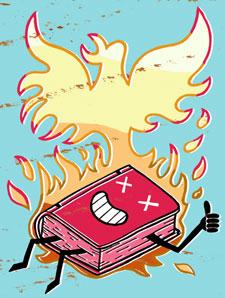

 Why you can trust Xtra
Why you can trust Xtra


